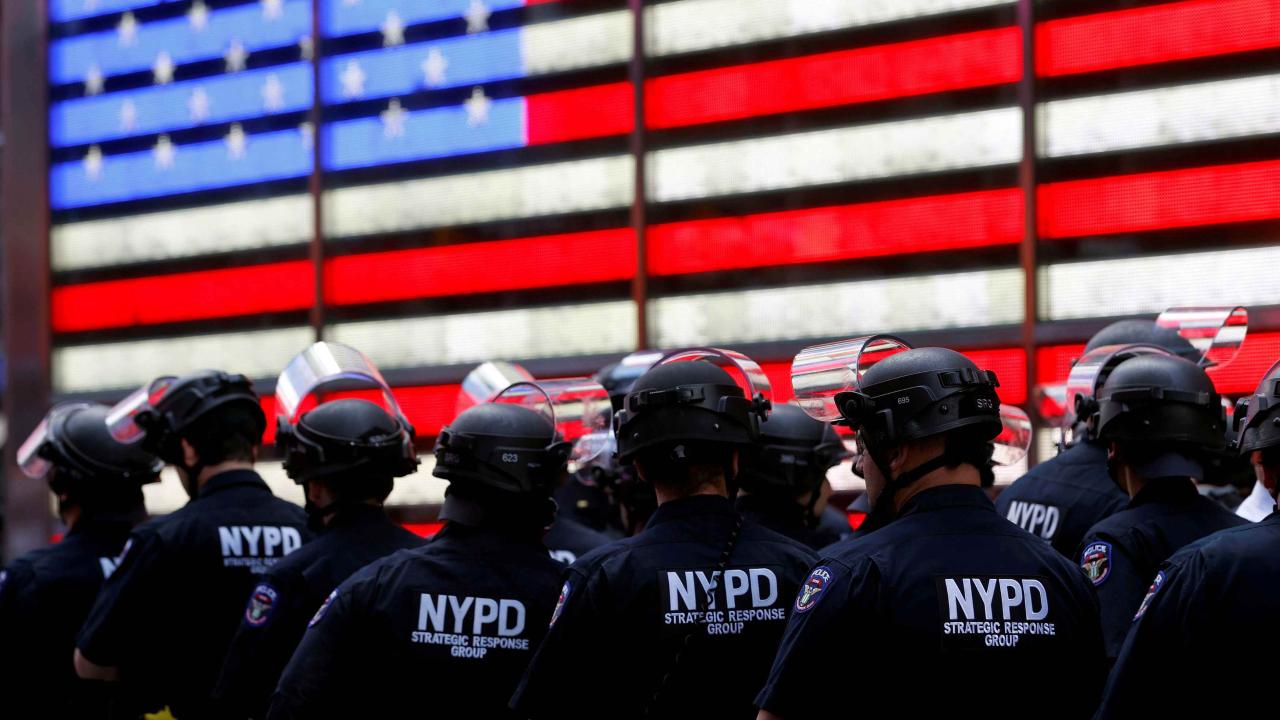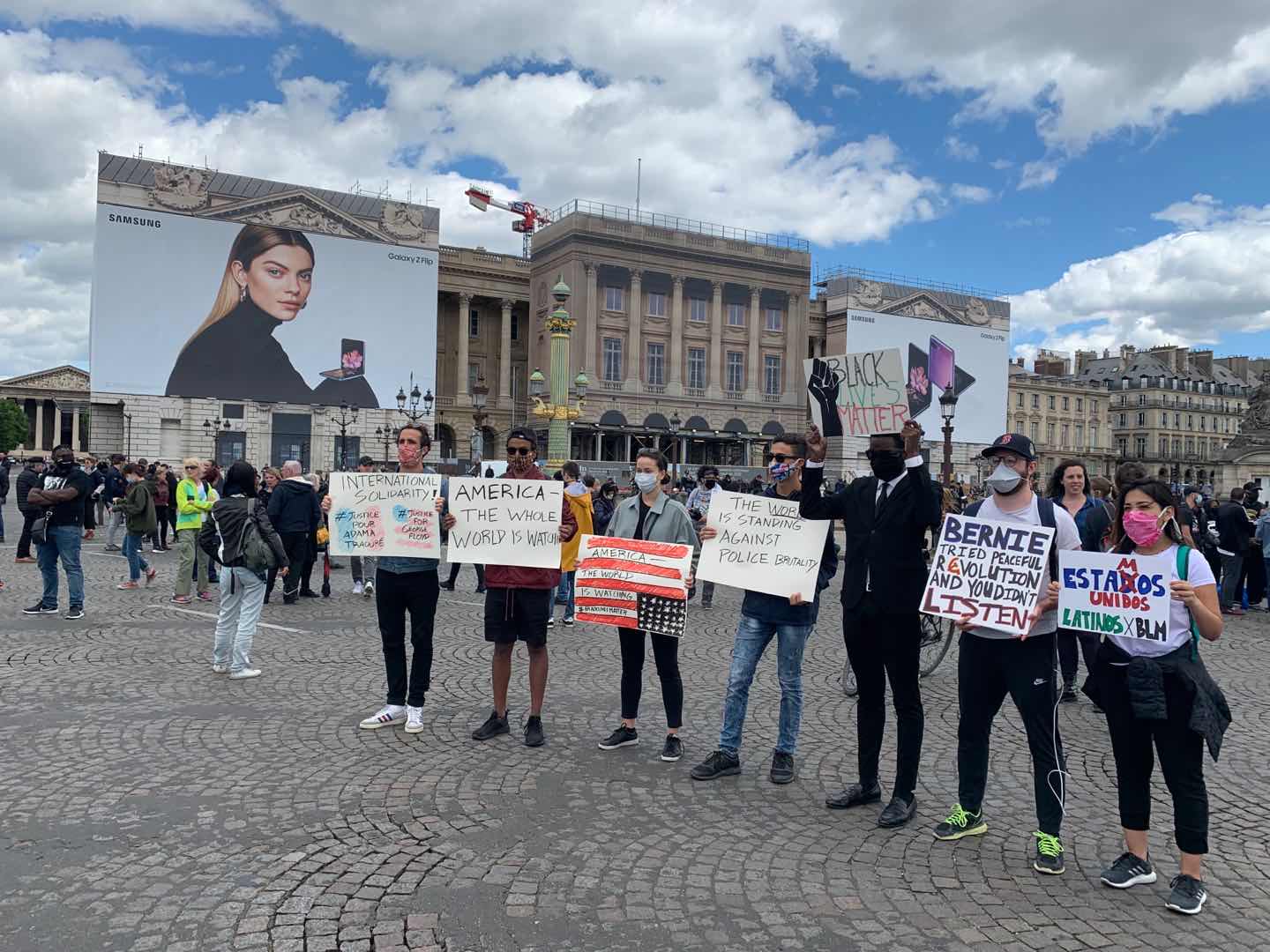
Editor's note: Freddie Reidy is a freelance writer based in London. He studied history and history of art at the University of Kent, Canterbury, specializing in Russian history and international politics. The article reflects the author's opinions, and not necessarily the views of CGTN.
In the wake of the death of George Floyd, police relations seem to be at an all-time low. One of the main demands of Black Lives matter has been a call to "defund the police" and streets are littered with the graffiti "ACAB" – all cops are bastards. Has the U.S. reached a new low in the relationship between Black communities and the police? And how can these relations be repaired?
One of the issues with the way in which Black Lives Matter portrays "fact" is that it ingrains in the popular consciousness that the notion that the U.S. is a racist country and that racism is institutionalized and endemic. The group believes that police brutality is state-sanctioned and targets black Americans.
There is no question that the U.S. has a history of racial oppression. It is a fact that police were repeatedly used to intimidate and attack African Americans during civil rights protest and to enforce Jim Crow segregation laws. This history has formed an indelible mark on relations between the police and Black Americans. However, there is no compelling evidence that the police operate a racist policy of targeting Black American men.
At BLM rallies, people are asked to "say their names", the names of Black victims of police brutality. The truth is that for every Black person that dies in custody, there are, as the writer Coleman Hughes observed "2-3 white people who have died the same way, nobody says their names and nobody cares." Fundamentally, a life is a life and a discussion on police reform should be a society-wide consideration. For every George Floyd there is a Tony Timpa and that is two too many people to die.

Protesters in Paris, France. /CGTN
Protesters in Paris, France. /CGTN
Bringing about social progress on the way the U.S. is policed, should not be solely viewed through the narrow confines of BLM's world view. If police forces were to be defunded and disbanded, what would you replace them with? If a society cannot rely on its political system to provide policing, then surely this is a cause for alarm and reform not disbandment? Removing the police does not mean an end to violent crime.
Indeed, forces need investment. Police are a part of society and indeed a reflection of it. How can relations be improved, and perceptions of the police change though?
When it comes to U.S. crime, it is hard to ignore the 2nd amendment – the right to bear arms. The U.S. is an armed nation. With four percent of the global population owning 46 percent of civilian firearms according to the Wall Street Journal.
This fact means that police in the U.S. are nearly always armed. They are armed when stopping a car with a broken brake light, they are armed when curbing school truancy, they are armed when enforcing minor duties such as where a market stall can be placed. This would seem disproportionate and unnecessary.
It is also a fact though that in 2019, a police officer was killed every three days on average. This tragic death toll undoubtedly causes fear and defensiveness throughout forces. Leading to an arms race between criminals and the police.
One approach that the U.S. could take to improve police relations with all communities, is to divide forces into units which maintain low-level civil issues and another unit which deals with serious crime. There would be no need for the civil units to be armed with anything more than a taser or baton. The presence of firearms at any friction-point invariably escalates the severity and potential for loss of life and sets a worrying precedent that order needs to be maintained with a gun.
It is highly unlikely that the U.S. will ever overturn the second amendment, however, reform to limit the sales of military-grade, fully automatic weapons could be achieved and perhaps such a change in U.S. policing tactics could help facilitate this.
To overcome decades of corruption and distrust, requires the link between police forces and their communities to be reaffirmed. A culture of "us and them" must be curtailed. Such a change in relations will require a painful introspection from police, community leaders, gun lobbies and politicians that will need to be followed by tangible commitments and policy.
The U.S. must be bold and assertive when it comes to gun reform. It must also demonstrate a willingness to reform its police forces, to refocus efforts on prevention, compliance and rehabilitation and not be focused on prosecution and enforcement. These are substantial challenges but challenges which are worthy, measured and essential in order to restore faith in the police and make the U.S. a safer place for all Americans.
(If you want to contribute and have specific expertise, please contact us at opinions@cgtn.com.)